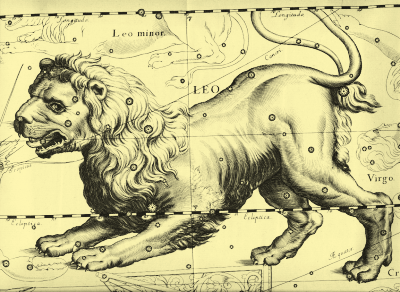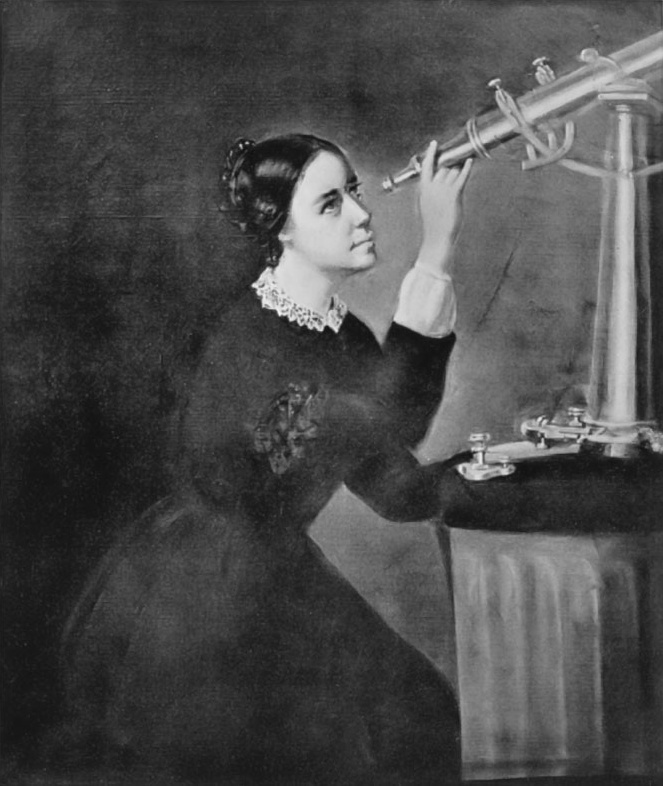|
Doris Vickers
Doris Vickers (born 1980) is an Austrian archaeoastronomer and content manager for the Unesco ''Portal to the Heritage of Astronomy''. She was a global co-ordinator of the ''Ancient Skies'' project, along with Ruediger Schulz. The project began in 2006 aiming to create a knowledge base of human cultures and their knowledge of astronomy, with the vision "One Planet – One Mankind – One Sky – One Knowledgebase", and is "currently transferring the complete project to a new environment". In February 2016 she appeared on BBC Radio 4's '' The Museum of Curiosity''. Her hypothetical donation to this imaginary museum was a star clock A star is an astronomical object comprising a luminous spheroid of plasma held together by its gravity. The nearest star to Earth is the Sun. Many other stars are visible to the naked eye at night, but their immense distances from Earth make .... Publications * References External links * 1980 births Living people Archaeoastronomers W ... [...More Info...] [...Related Items...] OR: [Wikipedia] [Google] [Baidu] |
Archaeoastronomy
Archaeoastronomy (also spelled archeoastronomy) is the interdisciplinary or multidisciplinary study of how people in the past "have understood the phenomena in the sky, how they used these phenomena and what role the sky played in their cultures". Clive Ruggles argues it is misleading to consider archaeoastronomy to be the study of ancient astronomy, as modern astronomy is a scientific discipline, while archaeoastronomy considers symbolically rich cultural interpretations of phenomena in the sky by other cultures. It is often twinned with ''ethnoastronomy'', the anthropological study of skywatching in contemporary societies. Archaeoastronomy is also closely associated with historical astronomy, the use of historical records of heavenly events to answer astronomical problems and the history of astronomy, which uses written records to evaluate past astronomical practice. Archaeoastronomy uses a variety of methods to uncover evidence of past practices including archaeology, anth ... [...More Info...] [...Related Items...] OR: [Wikipedia] [Google] [Baidu] |
Unesco
The United Nations Educational, Scientific and Cultural Organization is a specialized agency of the United Nations (UN) aimed at promoting world peace and security through international cooperation in education, arts, sciences and culture. It has 193 member states and 12 associate members, as well as partners in the non-governmental, intergovernmental and private sector. Headquartered at the World Heritage Centre in Paris, France, UNESCO has 53 regional field offices and 199 national commissions that facilitate its global mandate. UNESCO was founded in 1945 as the successor to the League of Nations's International Committee on Intellectual Cooperation.English summary). Its constitution establishes the agency's goals, governing structure, and operating framework. UNESCO's founding mission, which was shaped by the Second World War, is to advance peace, sustainable development and human rights by facilitating collaboration and dialogue among nations. It pursues this objective t ... [...More Info...] [...Related Items...] OR: [Wikipedia] [Google] [Baidu] |
UNESCO
The United Nations Educational, Scientific and Cultural Organization is a specialized agency of the United Nations (UN) aimed at promoting world peace and security through international cooperation in education, arts, sciences and culture. It has 193 member states and 12 associate members, as well as partners in the non-governmental, intergovernmental and private sector. Headquartered at the World Heritage Centre in Paris, France, UNESCO has 53 regional field offices and 199 national commissions that facilitate its global mandate. UNESCO was founded in 1945 as the successor to the League of Nations's International Committee on Intellectual Cooperation.English summary). Its constitution establishes the agency's goals, governing structure, and operating framework. UNESCO's founding mission, which was shaped by the Second World War, is to advance peace, sustainable development and human rights by facilitating collaboration and dialogue among nations. It pursues this objective t ... [...More Info...] [...Related Items...] OR: [Wikipedia] [Google] [Baidu] |
BBC Radio 4
BBC Radio 4 is a British national radio station owned and operated by the BBC that replaced the BBC Home Service in 1967. It broadcasts a wide variety of spoken-word programmes, including news, drama, comedy, science and history from the BBC's headquarters at Broadcasting House, London. The station controller is Mohit Bakaya. Broadcasting throughout the United Kingdom, the Isle of Man and the Channel Islands on FM, LW and DAB, and on BBC Sounds, it can be received in the eastern counties of Ireland, northern France and Northern Europe. It is available on Freeview, Sky, and Virgin Media. Radio 4 currently reaches over 10 million listeners, making it the UK's second most-popular radio station after Radio 2. BBC Radio 4 broadcasts news programmes such as ''Today'' and ''The World at One'', heralded on air by the Greenwich Time Signal pips or the chimes of Big Ben. The pips are only accurate on FM, LW, and MW; there is a delay on digital radio of three to five seconds and ... [...More Info...] [...Related Items...] OR: [Wikipedia] [Google] [Baidu] |
The Museum Of Curiosity
''The Museum of Curiosity'' is a comedy talk show on BBC Radio 4 that was first broadcast on 20 February 2008. It is hosted by John Lloyd (Professor of Ignorance at the University of Buckingham, and later at Solent University). He acts as the head of the (fictional) titular museum, while a panel of three guests – typically a comedian, an author and an academic – each donate to the museum an 'object' that fascinates them. The radio medium ensures that the suggested exhibits can be absolutely anything, limited only by the guests' imaginations. Each series has had a different co-host, under the title of curator of the museum. Bill Bailey acted as co-host of the programme in the first series, before leaving the show after deciding to "retire" from panel games. Sean Lock, Jon Richardson, Dave Gorman, Jimmy Carr, Humphrey Ker, Phill Jupitus, Sarah Millican, Noel Fielding, Jo Brand, Romesh Ranganathan, Sally Phillips, Lee Mack, Bridget Christie, Alice Levine and Holly Walsh hav ... [...More Info...] [...Related Items...] OR: [Wikipedia] [Google] [Baidu] |
Star Clock
A star is an astronomical object comprising a luminous spheroid of plasma held together by its gravity. The nearest star to Earth is the Sun. Many other stars are visible to the naked eye at night, but their immense distances from Earth make them appear as fixed points of light. The most prominent stars have been categorised into constellations and asterisms, and many of the brightest stars have proper names. Astronomers have assembled star catalogues that identify the known stars and provide standardized stellar designations. The observable universe contains an estimated to stars. Only about 4,000 of these stars are visible to the naked eye, all within the Milky Way galaxy. A star's life begins with the gravitational collapse of a gaseous nebula of material composed primarily of hydrogen, along with helium and trace amounts of heavier elements. Its total mass is the main factor determining its evolution and eventual fate. A star shines for most of its active life due t ... [...More Info...] [...Related Items...] OR: [Wikipedia] [Google] [Baidu] |
1980 Births
__NOTOC__ Year 198 (CXCVIII) was a common year starting on Sunday (link will display the full calendar) of the Julian calendar. At the time, it was known as the Year of the Consulship of Sergius and Gallus (or, less frequently, year 951 '' Ab urbe condita''). The denomination 198 for this year has been used since the early medieval period, when the Anno Domini calendar era became the prevalent method in Europe for naming years. Events By place Roman Empire *January 28 **Publius Septimius Geta, son of Septimius Severus, receives the title of Caesar. **Caracalla, son of Septimius Severus, is given the title of Augustus. China *Winter – Battle of Xiapi: The allied armies led by Cao Cao and Liu Bei defeat Lü Bu; afterward Cao Cao has him executed. By topic Religion * Marcus I succeeds Olympianus as Patriarch of Constantinople (until 211). Births * Lu Kai (or Jingfeng), Chinese official and general (d. 269) * Quan Cong, Chinese general and advisor ( ... [...More Info...] [...Related Items...] OR: [Wikipedia] [Google] [Baidu] |
Living People
Related categories * :Year of birth missing (living people) / :Year of birth unknown * :Date of birth missing (living people) / :Date of birth unknown * :Place of birth missing (living people) / :Place of birth unknown * :Year of death missing / :Year of death unknown * :Date of death missing / :Date of death unknown * :Place of death missing / :Place of death unknown * :Missing middle or first names See also * :Dead people * :Template:L, which generates this category or death years, and birth year and sort keys. : {{DEFAULTSORT:Living people 21st-century people People by status ... [...More Info...] [...Related Items...] OR: [Wikipedia] [Google] [Baidu] |
Women Astronomers
The following is a list of astronomers, astrophysicists and other notable women who have made contributions to the field of astronomy. __NOTOC__ A * Madge Adam (1912–2001), English solar astronomer * Maggie Aderin-Pocock (born 1968), English space scientist * Conny Aerts (born 1966), Belgian astrophysicist specializing in asteroseismology * Aglaonike (c. 1st or 2nd Century BCE), ancient Greek astronomer and thaumaturge * María Luisa Aguilar Hurtado (1938–2015), Peruvian astronomer * Eva Ahnert-Rohlfs (1912–1954), German variable star astronomer * Elizabeth Alexander (1908–1958), English geologist and physicist * Leah Allen (1884–1973), American astronomer and educator * Adelaide Ames (1900 - 1932), American astronomer * Anja Cetti Andersen (born 1965), Danish astronomer focused on cosmic dust * Necia H. Apfel (born 1930), American astronomer and educator * Alice Archenhold (1874–1943), German astronomer * Anne Archibald, Canadian astronomer and educator B ... [...More Info...] [...Related Items...] OR: [Wikipedia] [Google] [Baidu] |




